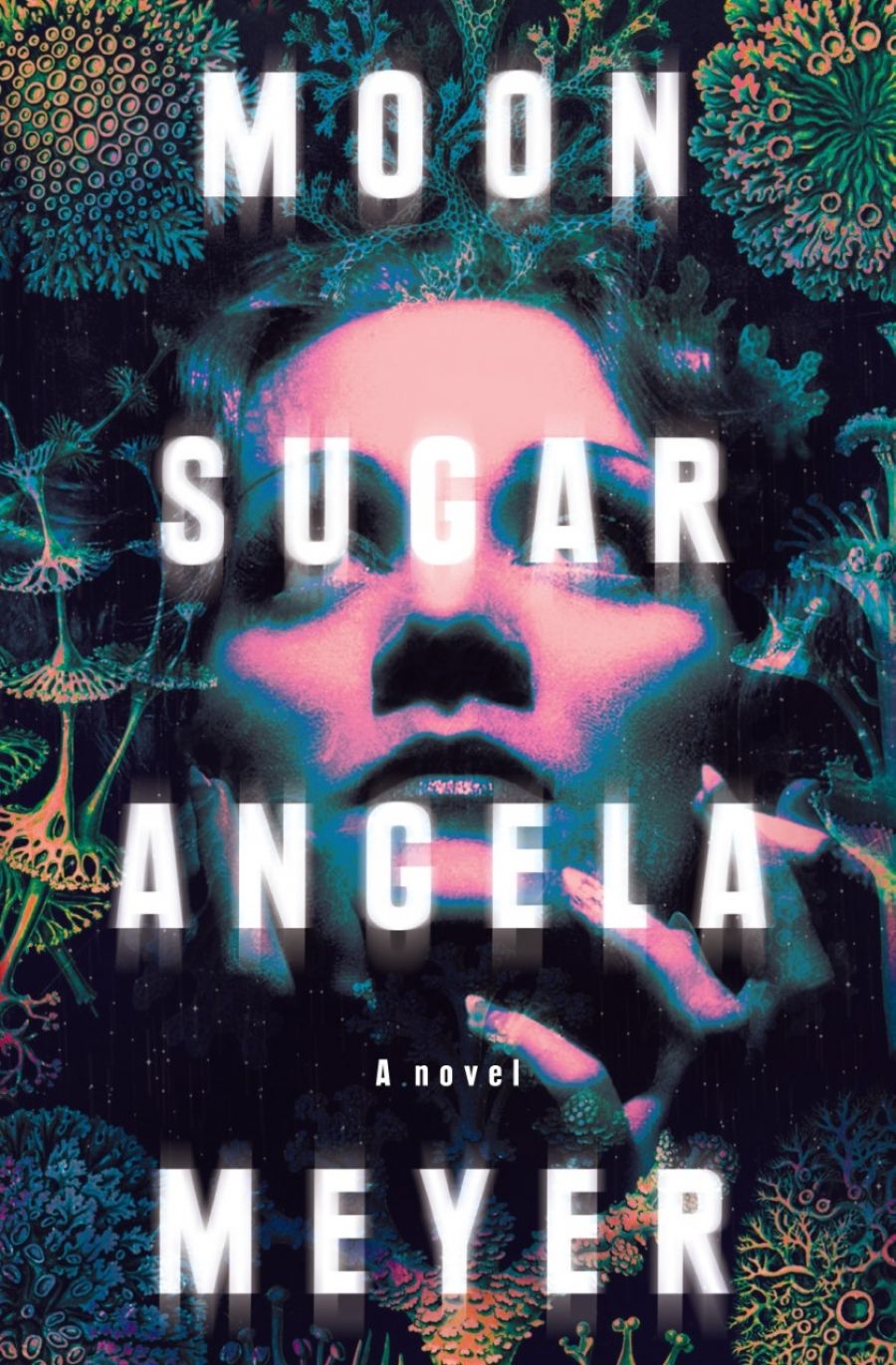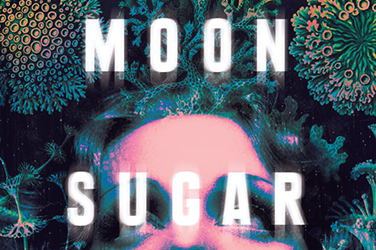
- Free Article: No
- Contents Category: Fiction
- Review Article: Yes
- Article Title: Blurring boundaries
- Article Subtitle: Angela Meyer’s experimental second novel
- Online Only: No
- Custom Highlight Text:
There is an experiment at the heart of Angela Meyer’s second novel, Moon Sugar. Without going into spoiler-level detail, it unlocks something in her protagonists, offering them new ways to connect with each other and the world around them. This experiment is a neat metaphor for Meyer’s own; by slipping between genres, her fiction strives to upend readerly expectations, expanding the possibilities for engagement.
- Featured Image (400px * 250px):

- Alt Tag (Featured Image): Jennifer Mills reviews 'Moon Sugar' by Angela Meyer
- Book 1 Title: Moon Sugar
- Book 1 Biblio: Transit Lounge, $29.99 pb, 256 pp
- Book 1 Readings Link: https://www.booktopia.com.au/moon-sugar-angela-meyer/book/9780648414056.html
Mira’s suppressed desires have been unlocked by her relationship with Josh, whom we meet in her memory; his companionship and ease in his body give her permission to experiment and explore. Mira’s experience also raises questions about embodiment and autonomy, as she navigates desire, grief, ageing, and different kinds of longing – for sex, companionship, or a child of her own. These shifts are shared with a frankness that is at once curious and generous.
There is plenty of momentum here, and if Moon Sugar had stayed in this mode it would have been enough. But Meyer cannot help reaching for something more. Slowly, the nature of the ‘experiment’ is revealed, and the book begins to move through genres as it moves through picturesque locations.
Meyer’s first novel, A Superior Spectre (2018), blended historical and science-fictional genres to create a Kindred-esque timeslip, giving her plenty of space to examine power and gender across two eras. That novel also had a particular interest in the way that suppressed desire acts upon the body, and a pronounced feminist message, as well as a decidedly romantic setting in the Scottish Highlands.
Here, she slips from romance/crime into magic, science fiction, and action. It’s a challenging set of transitions to pull off, and Meyer is admirably willing to reach for any tool in the kit, whatever will work in her service. But the greater the leap, the more poise is required, and the calm directness of Meyer’s prose is less successful when boundaries blur. The serious themes of desire, grief, and friendship have a depth that isn’t quite integrated into the later action sequences, further complicated by the need for sci-fi exposition in the middle of the story. In an effort to generate the kind of plot excitement that a straight genre read might offer, Meyer raises the stakes but sometimes loses balance in the process. It gives the effect of reading two or three novellas simultaneously, rather than a single novel.
In an early scene, Mira is looking for something to read, pondering the attractions of plot: ‘does she really just want to be propelled?’ Or is she looking for a story ‘that embraces open spaces and mysteries’? As Mira fingers the pages, we come close to a mission statement from Meyer: ‘Perhaps what she needs right now is a narrative that sits somewhere in between.’
Queer fiction often plays with genre, and queerness itself can be experienced as a slippage between worlds, as the realities and impulses of the body meet a set of social instructions that resist their presence. This phenomenon has certainly not escaped Meyer’s notice. Throughout Moon Sugar, characters directly share ideas about genre, sexuality, and the way that prescribed categories can hold us captive. At one point, Josh struggles with commodification, fighting the urge to give the punters ‘the bullshit they expect’ before railing against the identities that seek to enclose him: ‘prescriptiveness, parameters masquerading as celebratory openness’.
The ideal of openness occasionally sees Moon Sugar trying to accomplish too many tricks at once rather than striving for a cohesive whole. The fast-moving plot, with a few loose ends but a pronounced desire to explain itself, can contradict the novel’s messages about finding joy in the indeterminate and unresolved parts of ourselves. Like Mira, Meyer wants to find satisfaction ‘somewhere in between’, but she also wants to please her readers, and to make the ideas and characters fit a structure with commercial appeal. The effort of all this is sometimes visible, even if it comes with a redeeming dose of playful self-awareness.
Despite its declarations, Moon Sugar wants to deliver a story that settles and resolves. In that sense, it is more conventional than it seems. To paraphrase Audre Lorde, perhaps the house of taxonomic restraint can’t be dismantled with the master’s tools. But in the end, this matters little, since the novel’s real strength is not in its experiment, but rather its openness to the multifaceted nature of desire, its emotional transparency, and its generous, inclusive messages.


Comments powered by CComment